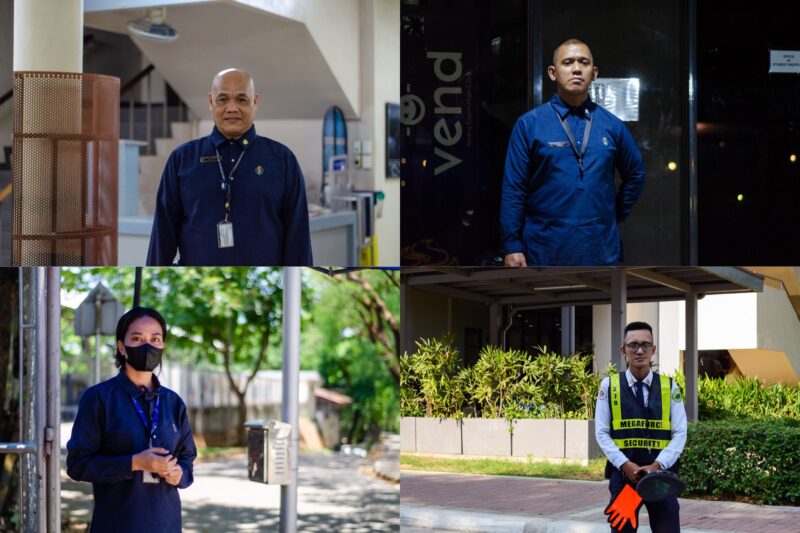NO-MEAT vegetarian diets have been around since the 1800s, but to strictly omit animal by-products is another lifestyle altogether. That stricter diet is veganism—no meat, dairy, or animal by-products for ethical, health, and sustainability reasons. Going on a vegan diet, however, is not easy when food industries work around a conventionally carnivorous diet culture.
To offer a flexible term, “plant-based” emerges and advocates for a lifestyle that revolves around heavily plant-sourced food. Conveniently timed when New Year’s resolutions are abound, the UK-based one month veganism challenge Veganuary enters the Philippines to paint 2021 the colors of a meat-free life. Fast food chains are responding left and right, and three plant-based eaters share their community’s woes and hopes.
Making the switch
To achieve a vegan-world with a cleaner environment free from animal agriculture, Veganuary launched the biggest campaign in 2020. The event successfully internationalized with 400,000 participants, 600 global brands, restaurants, and supermarkets introducing 1,200 new vegan products. However, taking on the challenge of going vegan must not be done without veganism’s advocacy in mind.
By taking any traces of “animal” off the plate, an individual’s carbon footprint is reduced by up to 73%, pressing the brakes on climate change. Ari Tanglao (1 BS ME), a vegan since October 2020 and member of Climate Reality, expresses that the animal agriculture industry is a major contributor to climate change. In addition to Tanglao’s discovery on the mistreatment of animals and its environmental impact, improving her health and fitness also urged her to break the meat-based diet chain.
Ninna Catipon (3 BS ES) became a vegan and an environmental advocate after coming across two documentaries on animal agriculture and its environmental impact. She says, “[When you see] the impact that we in our current lifestyles have, that’s when you realize: Oh how do we sustain this in the long run?”
In the Philippines, making the switch to a vegan diet can be tough as the country’s local menu and sauces are packed with meat. However, fast food chains have recently expanded the country’s meat-free options, making it easier for Filipinos to cut down on meat or even go completely vegan.
With more options, those new to veganism might confuse it with plant-based. Kirsten Angeles (3 BS HSc), who is currently sustaining a plant-based pescetarian diet, says that eating plant-based is “having your diet majorly composed of plants…even if you do eat some vegetarian products.”
Plant-based balance
Trying out veganism or plant-based requires research, fact-checking, and myth-countering. Tanglao shares that veganism owes its lack of popularity to the notion that vegan foods are bland. Angeles supports this, saying that vegans are portrayed to eat only salads and tofu, leaving them questioned for their protein source.
With the rise of alternative meat such as Beyond Meat and Impossible Burger, the vegan community has gone far to challenge the “lack of taste and protein” notion. These plant-based meats boast comparably high protein content and similar juicy goodness to real meat, minus the guilt of slaughterhouses.
However, one thing is clear: Alternative meat is as heavily processed as meat products. The “plant-based” meat of the Philippines’ popular food chains are mostly composed of soy protein and other extenders. On top of that, they are as laden with sodium as other fast-food meat products.
On the bright side, alternative meat “raises awareness on what veganism is,” Tanglao notes. It has zero cholesterol and less carbon emissions compared to its meat counterpart.
However, the rise in processed vegan foods also cultivates black-and-white thinking on veganism. A plant-based patty may not have meat, but it does not mean it is necessarily healthy or sustainable given its heavily-processed side. Likewise, consuming processed plant-based products does not equate to a “cheat” in veganism.
The key to sustainability is dietary open-mindedness and collaboration of vegans and non-vegans. Angeles expresses that there are other ways to be more sustainable without going fully vegan. Supporting industries that provide plant-based alternatives, for instance, may be helpful. However, to fully embody the principles of sustainability, one can begin by being more conscious of how food is sourced and how consumption impacts others.
Post-Veganuary
Even after January’s close, veganism and its principle of consciousness and balance should not necessarily end. Although Veganuary is time-bound, Angeles, Tanglao, and Catipon assert that veganism isn’t just a 30-day challenge and a life of black-and-white thinking.
Veganism is not always about salads and tofu or processed plant-based imitation meat in fast food chains. Rather, it is a constant practice of being more conscious, mindful, and inquisitive of the interconnectedness of people, animals, and the planet. At its core, veganism aims for balance—be it in one’s plate composed of vegetables, protein and a variety of nutrients, or in one’s relationship to one’s body and the environment.







